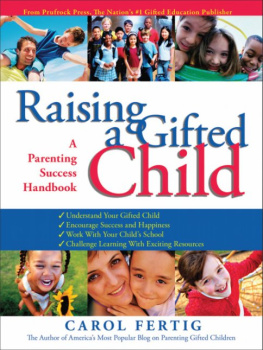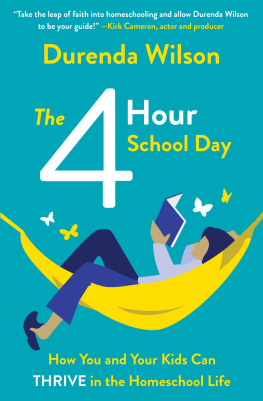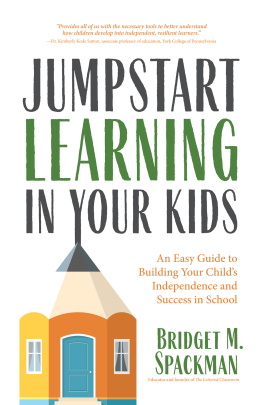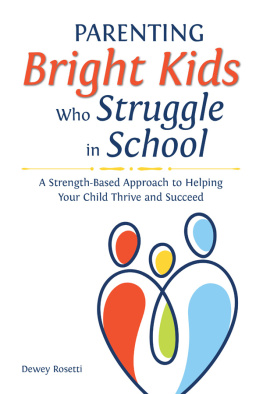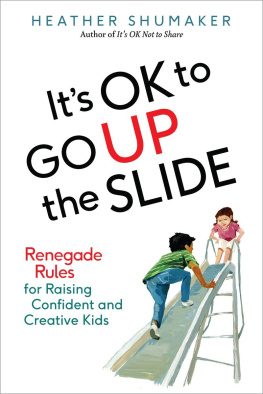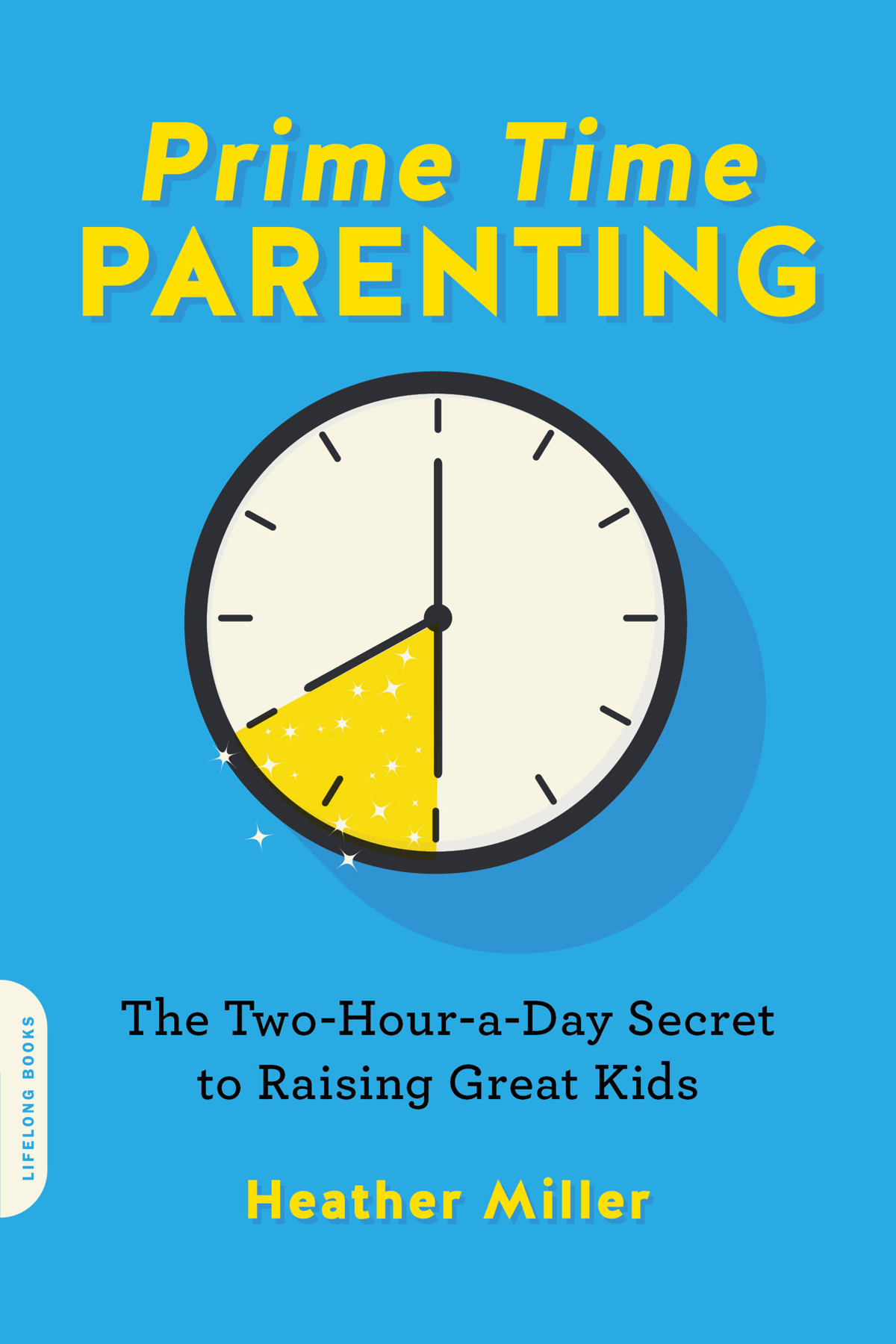Copyright 2018 by Heather Miller
Illustrations 2018 by LePage-Miller, Inc.
Illustrations by Tammy Wang
Hachette Book Group supports the right to free expression and the value of copyright. The purpose of copyright is to encourage writers and artists to produce the creative works that enrich our culture.
The scanning, uploading, and distribution of this book without permission is a theft of the authors intellectual property. If you would like permission to use material from the book (other than for review purposes), please contact permissions@hbgusa.com. Thank you for your support of the authors rights.
Da Capo Press
Hachette Book Group
1290 Avenue of the Americas, New York, NY 10104
www.dacapopress.com
@DaCapoPress
First Edition: January 2018
Published by Da Capo Press, an imprint of Perseus Books, LLC, a subsidiary of Hachette Book Group, Inc. The Da Capo Press name and logo is a trademark of the Hachette Book Group.
The Hachette Speakers Bureau provides a wide range of authors for speaking events. To find out more, go to www.hachettespeakersbureau.com or call (866) 376-6591.
The publisher is not responsible for websites (or their content) that are not owned by the publisher.
Editorial production by Lori Hobkirk at the Book Factory
Library of Congress Cataloging-in-Publication Data has been applied for.
ISBNs: 978-0-7382-8461-3 (paperback); 978-0-7382-8462-0 (ebook)
E3-20180809-JV-PC
The step-by-step guide to school nights families have always wanted. Kids thrive in structure, and Miller has created the perfect weeknight routine that helps children feel nurtured and families feel connected, all while getting things done!
Kyle Schwartz, teacher and author of I Wish My Teacher Knew
Prime Time Parenting is a much needed and detailed guide for contemporary parents rearing children in a new and challenging digital society. Heather Miller provides a wealth of concrete, practical suggestions for helping parents deal with the many obstacles screen technology poses for healthy parenting.
David Elkind, author of The Hurried Child and The Power of Play
In a fast-paced, information-rich world, parents need to work harder than ever to provide a nurturing, predictable, and upbeat home life. Heather Millers Prime Time Parenting helps parents define the best uses of technology for their growing children. This makes it an indispensable guide for the busy, modern parent.
Dr. Mariko Gakiya, SHINE Advisory Board member, Harvard T.H. Chan School of Public Health
Prime Time Parenting belongs on the bookshelf of every parent who means well and tries hard but is often so tired and stressed that the precious time we have with our families at the end of the day can unravel in chaos. Heather Miller has written a no-nonsense and supremely helpful guide designed to not only bring sanity and structure to family evenings, but to create the space to connect with the very people who give our lives so much joy and meaning.
Brigid Schulte, award-winning journalist, author of the New York Times best-selling Overwhelmed: How to Work, Love & Play When No One Has the Time, and director of the Better Life Lab at New America
No longer can parents complain that there are no owners manuals for raising children. In Prime Time Parenting, Heather Miller presents an exemplary step-by-step guide to help parents make productive use of every minute during a critical and often stressful time in a familys day6 to 8 p.m. weekdays. Based on best practices, and organized around family routines and meaningful rituals, this engaging book provides a valuable resource for any parents interested in strengthening their familys health, happiness, and well-being.
Ron Slaby, Ph.D., senior scientist, Center on Media and Child Health, Boston Childrens Hospital
Prime Time Parenting is a simply brilliant balm for the digital age. Heather Miller provides a realistic blueprint for giving your children the childhood we all crave: one where families gather around dinner tables, linger over bedtime stories, and tuck children into bed. As a parent of three boys and an expert in social and emotional learning, I think youll find that this book helps you to regain connection with your children and enjoy valuable adult time, all while supporting healthy development for every member of the family.
Laura Parker Roerden, author of Net Lessons and executive director, Ocean Matters
This book is dedicated to two legendary educators who have helped hundreds of children and parents become the best that they can be.
Brenda Carrasquillo-Sillen
and
Joann Rossin
My working life brings me into New York City schools on a regular basis. As an expert in the teaching of reading, critical thinking, and writing, I work in a wide range of schools to improve learning outcomes in these areas. This gives me the privilege of getting to work with students as young as four and as old as eighteen, sometimes all in the same day.
Recently I walked into a sixth-grade classroom. It was the second period of the day, and a boy was fast asleep in his chair. I drummed my fingers on his desk. When he woke up I asked him if I should send out for coffee. He rubbed his eyes, blinking, still somewhere between waking and sleeping. Then, to the great amusement of his classmates, he agreed that coffee would be a great idea. I smilingly pointed out that I could not get him a coffee because he was only eleven years old, and here we were at school at ten in the morning. The rest of the class found our little exchange highly amusing, and as an isolated incident, I did too.
But its not an isolated incident. Throughout the last several years at schools in widely different neighborhoods, Ive seen young children who are clearly suffering from sleep deprivation. Through conversations with these students, Ive learned some of the reasons for their fatigue:
Some stay up late doing homework.
Some have flexible bedtimes and end up getting much less sleep than the recommended nine to eleven hours.
Some play video games late into the night with or without their parents permission.
Some, after their parents put them to bed, continue to play digital games on their phone, tablet, or other deviceor engage with social media deep into the night.
We might expect some of these scenarios in teens, but were increasingly seeing them in elementary and middle school children. The digital age has changed how we liveand how our children live. Adults have a responsibility to wisely integrate technology into our childrens lives. That includes carving out significant time each day for screen-free time, opportunities for quiet activities, and face-to-face conversation. Establishing a balance for our children encourages the development of the whole child. However, we cant give what we dont have. Parents need to establish healthy screen habits in order for their children to enjoy the same.
Most adults have learned to navigate the subtleties of the digital world. Weve figured out that a Facebook friend is not the same thing as a friend you roomed with in college. We know that the amazing affordances of Skype and teleconferencing arent perfect substitutes for communication with people who are physically present. And we are increasingly aware that our tendency to be tethered to our smartphones damages our closest relationships.


